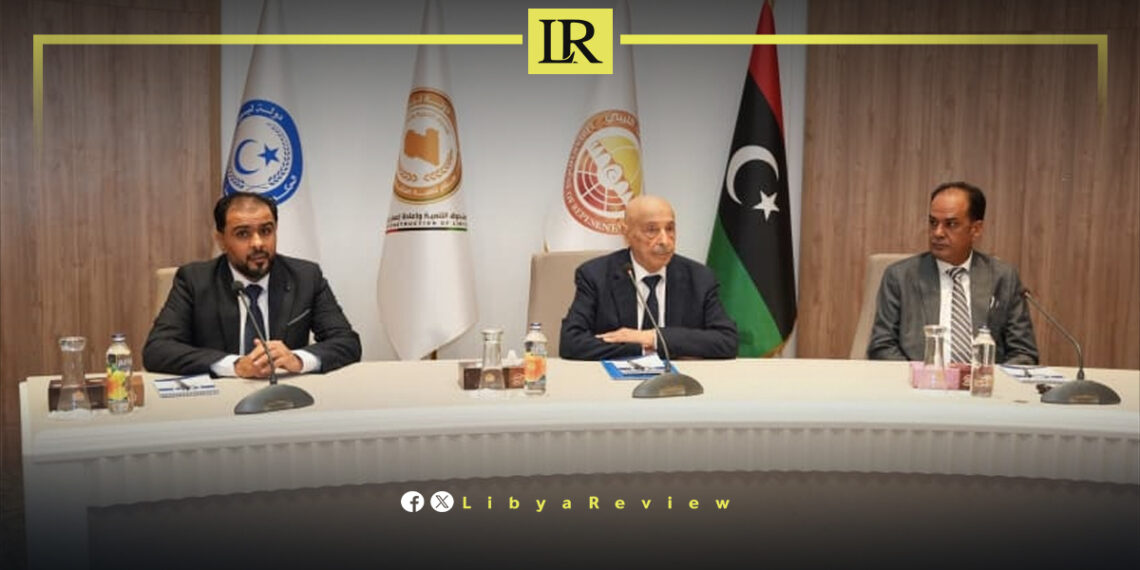On Wednesday, the Speaker of the House of Representatives, Ageela Saleh, Prime Minister Osama Hammad, General Director of the Reconstruction and Development Fund, Belgassem Haftar, held an emergency meeting in Benghazi to address Libya’s worsening electricity crisis, which has left several cities grappling with partial and complete blackouts.
The meeting was also attended by the Chairman of the Energy Committee, Issa Al-Araibi, the Chairman of the Finance Committee, Omar Tantoush, and the Minister of Electricity, Awad Al-Badri.
The talks focused on Libya’s ongoing electricity crisis, which continues to fuel frustration among citizens across several cities facing recurring blackouts.
The meeting reviewed both the technical breakdowns and administrative shortcomings that have left the General Electricity Company of Libya unable to keep pace with demand. Participants highlighted how the persistent shortages are straining hospitals, disrupting water supply systems, halting production lines, and undermining the stability of daily life.
Ageela Saleh and Osama Hammad stressed that addressing the power crisis requires structural, long-term solutions rather than patchwork fixes.
They underscored electricity as a national priority, describing it as fundamental not only to the comfort of households but also to economic growth, investor confidence, and the wider reconstruction process.
Among the proposals discussed were launching new power generation projects, modernizing transmission infrastructure, and strengthening maintenance and supply systems. Participants also agreed on the need for closer coordination between legislative and executive bodies to speed up approvals and ensure funding for strategic projects.
The officials emphasized that solving the crisis will demand sustained cooperation, transparency, and efficient use of national resources. They warned that without urgent and comprehensive measures, blackouts could intensify, further eroding public trust and jeopardizing development efforts.
The Benghazi session closed with a joint pledge to move forward on a national energy strategy that guarantees a stable power supply across all regions, reduces reliance on temporary emergency measures, and ensures fair distribution.


